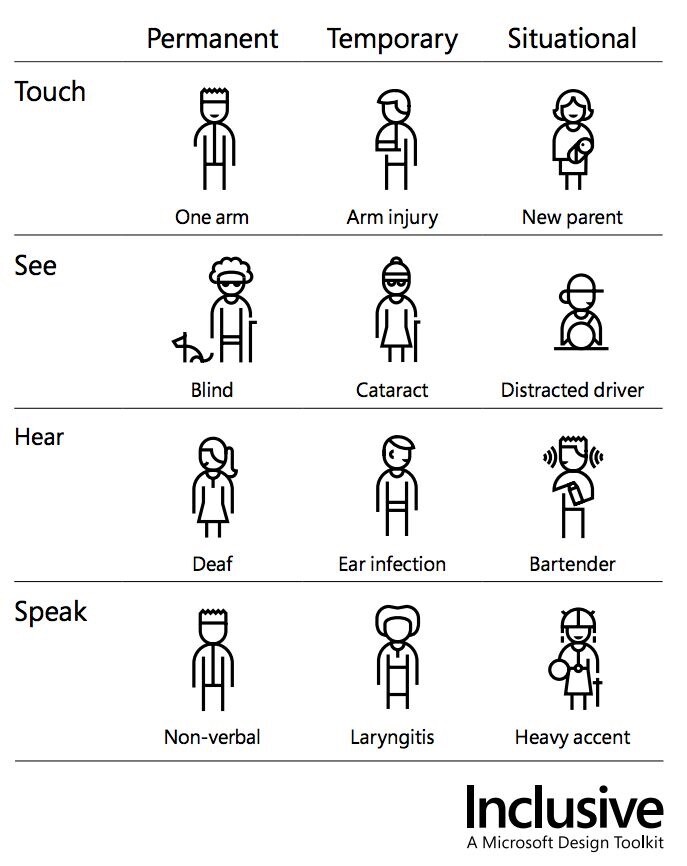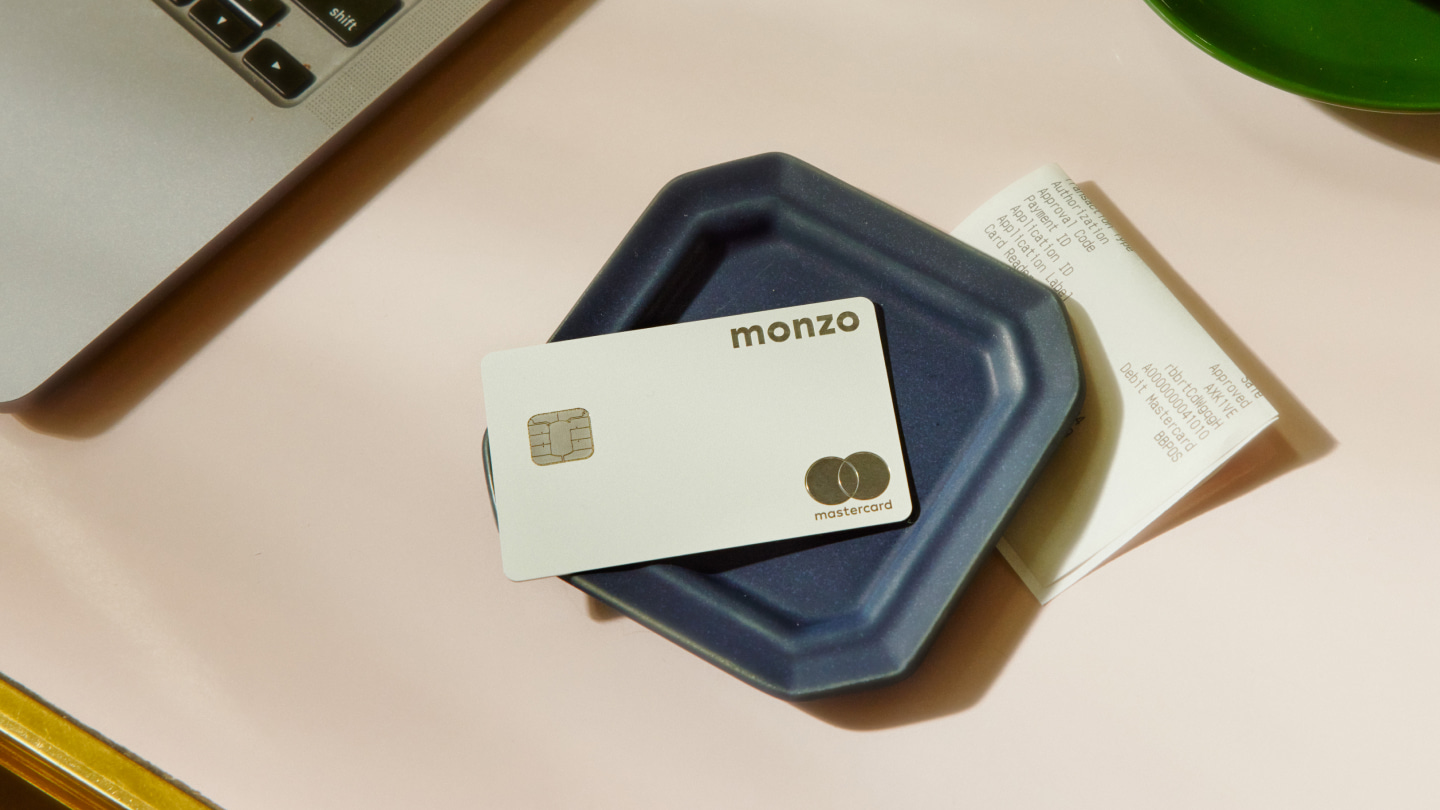About 10 years ago, I burnt my hand one morning while cooking breakfast. After a trip to A&E, my right hand was bandaged up leaving it painful to close. Any movement of the fingers on my right hand caused the skin to crack. It wasn’t pleasant.
After a few days it was back to normal, but the situation left me with a newfound understanding of using a computer with an impairment. It was also around this time that a graphic made by Microsoft made the rounds.

I sympathise with the Viking.
I often think of this image, and how obvious it seems. It’s something that everyone building products should see. With the Situational column, I think it touches on something deeper which most companies completely ignore - the context of use.
While I don’t want to shit on any individual’s work, I think it points to a larger problem in product development - when we build features, we ignore possible contexts in which they might be used.
iOS Focus
Focus was released in 2021 with iOS 15 and while it was mostly a good idea, the Driving mode was a fucking pain in the arse. I understand that America is a car centric country, but iOS would push an alert when traveling over a certain speed with just 2 options - Enable, and dismiss. No option to dismiss forever.
Living in London, I take public transport and cycle a lot. I continually got hit with this until I found online that there was a setting to not suggest it.
Airbnb
It’s been a while since I used an Airbnb, since they are single handedly destroying the housing market in multiple cities, but when I did, I encountered one real ignorance of context.
I had organised a weekend in Paris for Lila’s birthday. After getting off the Eurostar, we followed the address that I had in Google Maps. When we got off the Metro, the real problem started - signal was patchy, and the details of our booking were not saved offline. We had no idea where we were, what building it was, and how to get through the door. Eventually I got enough signal to get some information, but it was about 10 minutes of stress.
Is it that Airbnb staff don’t actually travel that much? Maybe they always had good mobile data coverage? It seems like such an obvious use case to me that I can’t help but think that someone suggested it only for it to languish at the bottom of the backlog.
Monzo
Before traveling last year I needed to organise my travel insurance. I didn’t spend too long thinking about it, so I upgraded my Monzo account to their premium offering which includes it among a range of benefits.
Monzo’s hot coral card became something of a trademark, but the premium level upgrades that to a metal one.

Monzo’s Premium Card
The premium level increases the amount of cash that you can withdraw while outside of the UK. What a great thing to make traveling easier, except for one fatal flaw - the metal card isn’t solid metal, it’s actually a layer of metal on top of a layer of plastic so it’s thicker than a normal card.
There’s a reasonable chance that it won’t fit into a cash machine. If you’ve just got your Monzo premium card with you and need some cash, you might end up in tough spot.
When I was in Mallorca recently, there were people selling cocktails on the beach who only took cash. My card didn’t fit in the cash machine just off the beach. I luckily had something else, but what use is a card that won’t fit in a cash machine?
Form and function
Everyone deserves good software and products, but when you’re building something, think about how everyone might actually use it.
You don’t want to ship a chocolate teapot, or a debit card that won’t fit in cash machines.